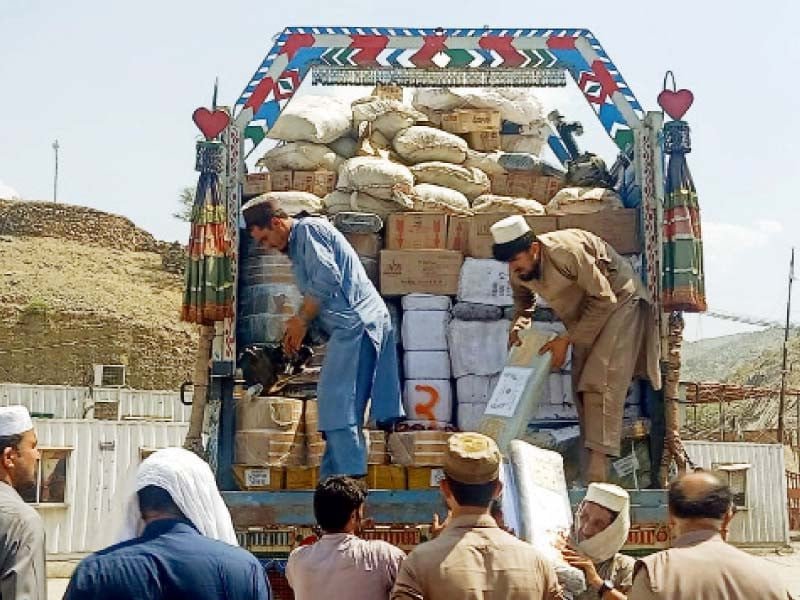Hafeez Ahmed Khan
Smuggling is the conveyance of things by stealth, particularly the clandestine movement of goods to evade customs duties or import or export restrictions. National and international laws forbid smuggling as it is considered an anti-social and economic transaction. My article covers the subject of how to control smuggling in Pakistan. Accordingly, there is a need to put in place a comprehensive plan to prevent smuggling in Pakistan due to the multiple challenges.
The recommendations to control smuggling in Pakistan can be grouped into four main categories: legal, institutional, social, and economic. Each of these categories has its own strengths and weaknesses, and they need to be implemented in a coordinated and comprehensive manner to achieve the desired results.
Legal recommendations include increasing prosecutions and convictions of both sex trafficking and forced labour, amending the PTPA to remove penalty provisions that allow fines in lieu of imprisonment for sex trafficking offences, training officials on the implementing rules for the PTPA, ensuring victims are not penalized for acts traffickers compelled them to commit, and designating specialized prosecutors and judges to hear trafficking cases. These recommendations aim to strengthen the legal framework and enforcement mechanisms to deter and punish traffickers and smugglers, as well as to protect and assist victims. However, some of the challenges that may hinder the implementation of these recommendations are the lack of political will, corruption, capacity gaps, resource constraints, and weak coordination among different agencies and jurisdictions.
Please, subscribe to the official website of republicpolicy.com
Institutional recommendations include finalizing implementation rules for the PTPA, adopting a new five-year national action plan to combat trafficking in persons and migrant smuggling crimes, instructing labor departments to refer all suspected bonded labor cases to police for criminal investigation, training of provincial police, labor inspectors, and social services on SOPs, expanding services for bonded laborers, including shelter, identity documents, and legal assistance, and establishing a National Targeting Centre. These recommendations aim to improve the policy framework and operational capacity of the relevant institutions to prevent and combat trafficking and smuggling, as well as to provide adequate support to victims. However, some of the challenges that may affect the implementation of these recommendations are the lack of coordination and cooperation among different stakeholders, overlapping mandates and responsibilities, bureaucratic hurdles, and insufficient funding and equipment.
Social recommendations include raising awareness among various risk groups, public and relevant Pakistani authorities, and NGOs about trafficking and smuggling, ensuring the quality and availability of trafficking-specific services, including for males, setting up economic development zones in the border areas to provide legal sources of income to the people living in neglected areas, and ceasing support to non-state armed groups that recruit and/or use child soldiers. These recommendations aim to increase the social awareness and mobilization against trafficking and smuggling, as well as to address some of the root causes and vulnerabilities that facilitate these crimes. However, some of the challenges that may impede the implementation of these recommendations are the lack of reliable data and information on trafficking and smuggling trends and patterns, cultural norms and attitudes that condone or tolerate these crimes, security threats and instability in some regions, and limited access and outreach to remote or marginalized communities.
Economic recommendations include:
- Developing industry and trade inside the country so that most of the attractive electronics and other goods of daily use are produced locally.
- Curbing cash smuggling by couriers through introducing the Advance Passenger Information System (APIS) at international airports.
- Re-structuring enforcement formations on the basis of ground demands.
These recommendations aim to reduce the economic incentives and opportunities for trafficking and smuggling by enhancing domestic production and consumption, increasing customs revenues and controls, and optimizing resource allocation. However, some of the challenges that may hamper the implementation of these recommendations are the global market forces and competition that affect local industries, the complex nature of money laundering networks that evade detection and regulation, and the political economy factors that influence policy decisions.
Please, subscribe to the monthly magazines of republicpolicy.com
In conclusion, the recommendations to control smuggling in Pakistan are diverse and comprehensive. They cover various aspects of legal, institutional, social, and economic dimensions. However, they also face various challenges that require political commitment, inter-agency collaboration, and public participation.
Therefore, these recommendations mustn’t be seen as isolated or independent measures but as part of a holistic strategy that addresses both the supply side (traffickers/smugglers)and the demand side (consumers)of trafficking/smuggling.
















